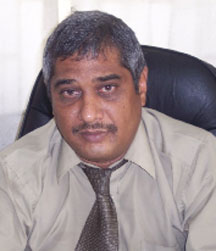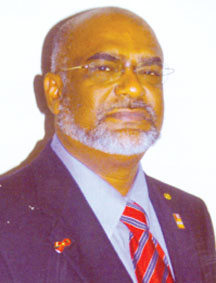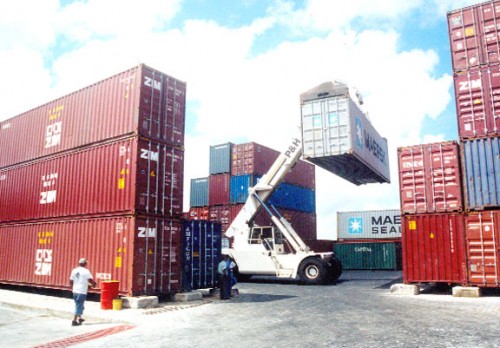The Guyana Revenue Authority, according to reports, will shortly be moving to sell by auction or dispose of by dumping a quantity of want of entry (unclaimed) cargo, which has been lying on local wharves for several years.
Some of the cargo which the GRA plans to dispose of has reportedly been lying on wharves for “as many as four to five years” creating serious “space problems” in circumstances where an increasing amount of cargo was being shipped to Guyana.
Specific procedures associated with the particular identification of the cargo to be sold or dumped coupled with the acquisition of permission to move ahead with the process are to be pursued prior to any action.

Meanwhile, Stabroek Business has also learnt that the Customs and Trade Administration is to introduce equipment to scan containers arriving at Port Georgetown by January 1, 2011.
The issue of the disposal of want of entry cargo was among a number of matters discussed at a recent meeting between the Guyana Revenue Authority and the Private Sector Commission sub-group on the National Competitiveness Strategy. During an interview with Stabroek Business earlier this week President of the Georgetown Chamber of Commerce and Industry Komal Ramnauth who is a member of the sub-group said that the local private sector was working “piece by piece” with the Customs administration “to eliminate problems that impact on the ability of the Customs to provide the business community with an efficient service.”
Ramnauth told Stabroek Business that the meeting focused on measures designed to avoid the customary seasonal bottlenecks in the clearance of cargo by giving attention to improving the efficiency of data entry inputting and the checking of entries and that a decision had been taken that the CTU would provide more staff for its operations and will also extend its working hours to accommodate the anticipated increased demand for its services at this time.

Meanwhile, according to Ramnuath, the GRA is to hold a separate meeting with the private sector sub-group to discuss a range of other issues including smuggling, counterfeiting, under-invoicing and the importation of sub-standard goods.
While concerns have continually been raised over corruption-driven collusion between customs officials and members of the business community, Ramnauth told Stabroek Business that he did not believe corruption was “a main feature” affecting the efficiency of the business sector. “I am not attempting to make light of corruption. It exists and wherever and whenever it is discovered it should be dealt with to the full extent of the law. However, I do not agree that it is the primary factor affecting the effectiveness of the business community. In fact, I would say that our primary problem is the absence of cheap energy.”

Ramnauth, who assumed the presidency of the GCCI earlier this year, has made a number of statements designed to encourage more members of the business community to apply for membership of the chamber. During last week’s interview, however, he repeated an earlier statement that membership of the chamber will not be automatic. “We have made it clear that there will be a process of vetting and that we expect that, among other things, applicants seeking membership will have to be NIS and GRA compliant.” He said that while the focus, up until now, had been on “voluntary registration” with the chamber, his administration would be seeking to take “a more pro-active approach to bringing members into the chamber in the future.”





